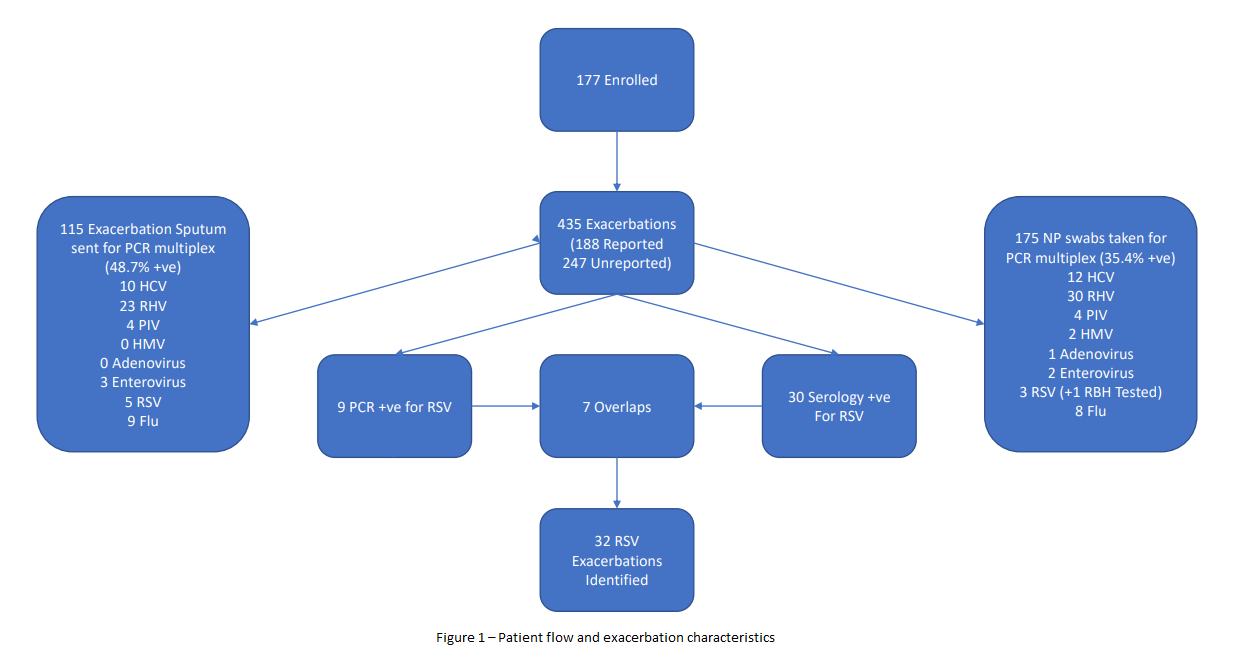Abstract
Introduction: Respiratory Syncytial Virus (RSV) is a common respiratory pathogen. It is increasingly recognised as a significant cause of respiratory illness of frail older adults and those with lung disease such as Chronic Obstructive Pulmonary Disease (COPD). The aim of this study was to investigate the burden of RSV in exacerbations of COPD.
Methods: Participants were seen at baseline, exacerbation onset and recovery. Virus associated exacerbations were identified by PCR analysis of nasopharyngeal (NP) swabs and sputum, and RSV associated exacerbations also by serology.
Results: 177 patients were recruited into the study from the well characterised London COPD cohort. Participants were followed for an average of 748 days, giving a total of 296.8 patient-years of data. RSV infection was identified in 32 exacerbations (7.4%). 30 of these RSV-associated exacerbations were detected using serology; 4 by PCR of 175 NP specimens and 5 by PCR of 93 sputum samples taken at exacerbation (with 7 detected by both methods (Figure 1)).

RSV associated exacerbations were shorter in duration relative to non-RSV exacerbations (10.3 vs 20.48 days p=<0.05 using Dunn?s test) but were associated (not-significantly) with a higher CRP and CAT score change compared to baseline.
Conclusion: RSV is a significant cause of COPD exacerbations. This suggests that when there is a safe and effective RSV vaccine, adults with chronic respiratory disease should be vaccinated.